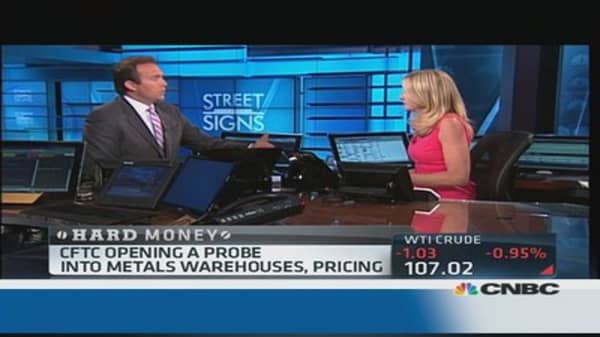If you're wondering why a few very large banks in the United States play such a big role in the commodities markets, you aren't alone. Most people reading the New York Times' article on Goldman's weird, confusing and very profitable role in warehousing aluminum probably found themselves scratching their heads a bit.
Traditionally, banks in the United States were kept out of commercial business. The reason for the separation of commerce and finance was two-fold: to protect the soundness of the financial system from turbulence in the broader economy and to protect the broader economy from being dominated by finance.
This latter point is particularly important. Allowing the same institutions that control access to credit to also control access to the basic units of production threatens to grant those institutions disproportionate control over the entire economy.
And yet, here we are. Goldman Sachs, JPMorgan Chase and Morgan Stanley are now major merchants of physical commodities and energy. How did we let regulated banks get a hold of this part of our economy? And what are they doing now that they are commodity and energy merchants?
The answer to the first question is relatively straight forward: 2008 happened. That's when Goldman and Morgan Stanley—which already had commodity merchant businesses—transformed themselves into bank holding companies in order to avail themselves of better protection from the Federal Reserve. That year, JP Morgan acquired Bear Stearns, which was a major energy player. So the current situation is, at least in part, a fallout from the financial crisis.
The second question is trickier. Goldman, Morgan Stanley and JP Morgan say almost nothing at all about their commodities and energy businesses. They're required to disclose just one thing to regulators: the total value of the commodities they hold on their balance sheet. But other than that, we're in the dark.





